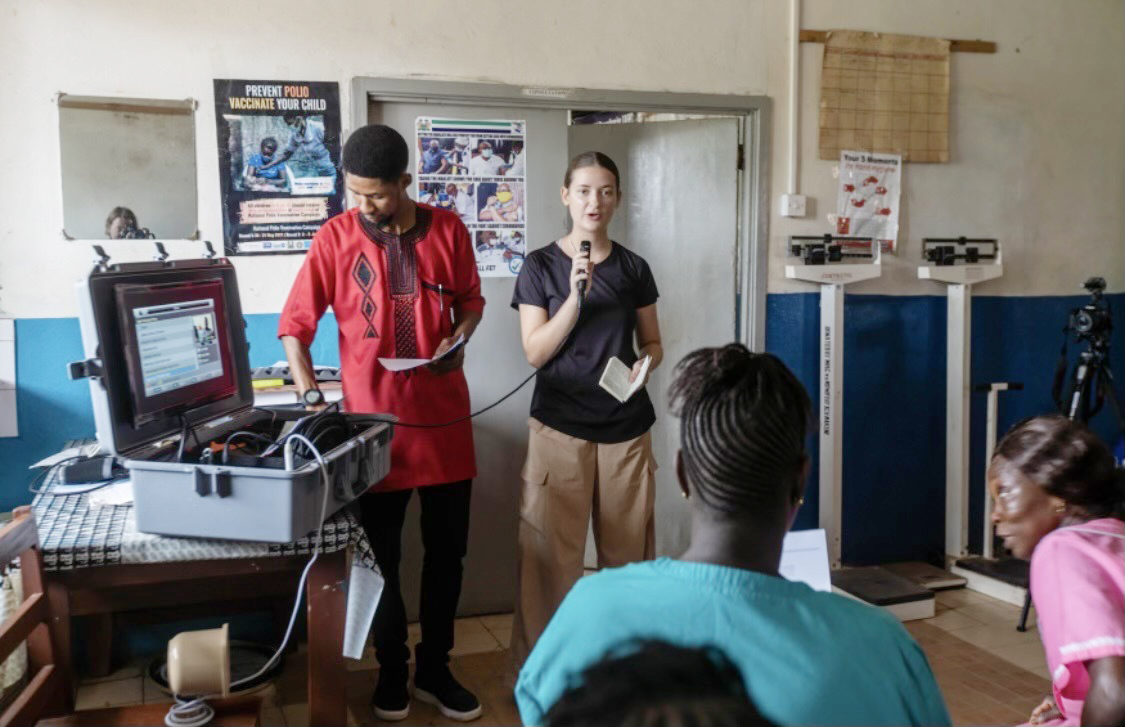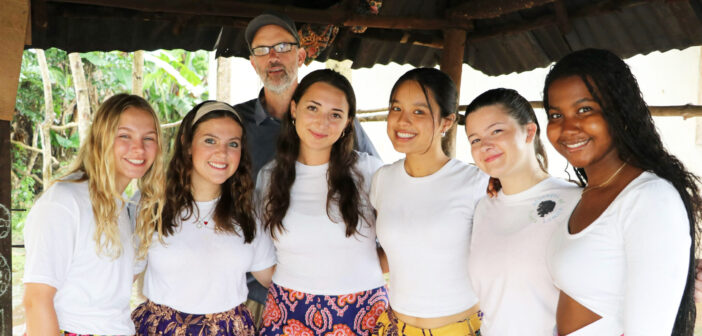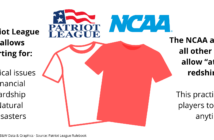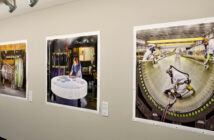In Sierra Leone, 717 women die for every 100,000 childbirths, according to United Nations Population Fund. The challenges of childbirth extend beyond the walls of hospitals and clinics, as the country’s healthcare system is severely understaffed.
Since 2019, The Mothers of Sierra Leone Fellowship at Lehigh University has combined documentary filmmaking with community-based research to address these challenges.
This program is part of Lehigh’s Global Social Impact Fellowship, which operates under the Office of Creative Inquiry and is driven by student-led projects.
The fellowship, in which students use technological solutions to give a voice to those who have been affected and overlooked, is a yearlong initiative led by Lehigh professors Michael Kramp and Fathima Wakeel.
Six Lehigh students are selected annually to create five- to seven-minute films on maternal and child health topics. The films are screened in health clinics across Sierra Leone, where they aim to educate, inform and inspire change.
Kramp, an English professor with a background in 19th-century British literature, masculinity studies and filmmaking, said the fellowship was born from a personal experience.
“Maternal health was something very important to me,” Kramp said, referencing a distressing birth experience he said his wife endured.
He said he wanted to explore what he could do with his expertise to support maternal health in Sierra Leone.
Kramp’s vision extended beyond filmmaking — he said he wanted to create a platform where the authentic stories of Sierra Leonean women and healthcare providers could be told without the influence of Western perspectives.
Wakeel, an associate professor in the College of Health with expertise in maternal and child health, was brought onto the team as a co-mentor of the project in 2020. Her work specializes in understanding how personal capital — protective factors developed over a person’s life — affects maternal and child health outcomes.
“Dr. Kramp heads up the filmmaking aspect, and I lead the research, but we work together,” Wakeel said. “The research informs the films, and vice versa.”
This integrated approach allows the fellowship to evaluate the efficacy of the films in changing women’s intentions to seek maternal healthcare and attract more individuals to join the healthcare workforce in Sierra Leone.

Lauren Lencovich, ’25, speaks to potential interviewees in Sierra Leone in summer 2023. Lencovich worked on two films, “Dr. Solomon Samura Profile” and “Nutrition Film.” (Courtesy of Christa Neu)
Sophie Ritzler,‘27, joined the fellowship in Jan. 2024. She said she’s since had the opportunity to see how the filmmaking approach resonates with audiences.
She’s one of six students who participated in the fellowship this summer, and she said her cohort visited over 18 health clinics and conducted 70 interviews with healthcare workers and parents during their time in Sierra Leone.
“It’s a unique strategy to get this information across, and it’s been amazing to see the positive feedback from people recognizing their stories and the beauty of their country in our films,” Ritzler said.
Instead of presenting these films from a Western perspective, the filmmakers depict Sierra Leonean mothers, fathers and healthcare workers talking.
Ritzler said she was moved by an interview with a healthcare worker in the postnatal ward at a government hospital who shared a story of a teenage mother struggling with postpartum depression. The healthcare worker had been a teenage mother herself and used her personal experience to provide emotional support and encouragement to the young woman.
“That moment really struck me,” Ritzler said. “It was inspiring to have a woman who I had just met really open up to me and be able to tell me about her personal experiences and how she’s able to be a better healthcare worker because of them.”
The fellowship aims to sustain the project by gradually transitioning the filmmaking and storytelling responsibilities to local partners in Sierra Leone.
A pilot program is underway, and the team recently launched a 12-month study on rural health disparities, hoping to attract additional funding to expand these efforts.
Looking ahead, Wakeel hopes the fellowship will transition into a more consultative role, empowering local partners in Sierra Leone to take the lead.
“We realize these stories are not ours to tell,” Wakeel said. “They should be told by the people of Sierra Leone, for the people of Sierra Leone.”






Comment policy
Comments posted to The Brown and White website are reviewed by a moderator before being approved. Incendiary speech or harassing language, including comments targeted at individuals, may be deemed unacceptable and not published. Spam and other soliciting will also be declined.
The Brown and White also reserves the right to not publish entirely anonymous comments.